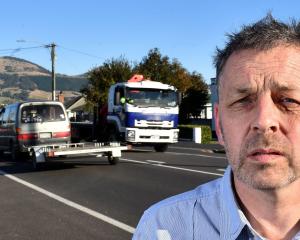Prof Theis, an orthopaedic surgeon who until recently was Southern District Health Board Otago surgery clinical director, said the board appeared to have a "major problem" providing elective surgery, particularly in Otago.
As of June, it had three times the national average of "active review" patients, those who are just below the points threshold for surgery, and are monitored for deterioration.
Nationally, there is a high bar for obtaining surgery, which has to be carried out within six months of the first specialist assessment if the patient meets the criteria.
Prof Theis said health rationing measures like active review were a false saving, as patients ended up getting surgery but only once they had greatly deteriorated.
They were "out of sight, out of mind" for health administrators, but not for surgeons, he said.
Another group of patients not severe enough for active review was simply sent back to their GP.
The number of these patients was not recorded.
The answer to the premise of his talk: "Are patients getting a fair go?" was both yes and no, he said.
Yes, because the prioritisation tools used to ration care were robust and world-leading.
No, because the threshold for surgery was very high.
There was also too much variability across district health boards.
The only way the situation would change was if the public made a noise about it, he said.
The 2010 neurosurgery campaign in Otago and Southland had shown what was possible.
Access to elective surgery was better in smaller centres, because main centres were responsible for a much greater range of more complex surgery.
After his talk, he told the Otago Daily Times Dunedin Hospital, as with other "tertiary" hospitals, had to provide a bigger range of surgery and that was part of the reason it was "struggling".
Also, Dunedin had not seen the investments in infrastructure that other centres had, he said.
Prof Theis is professor of orthopaedic surgery at the Dunedin School of Medicine.












